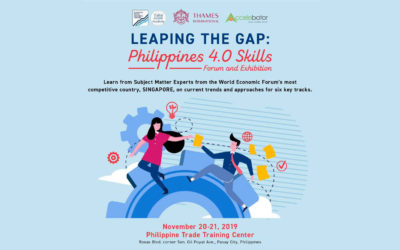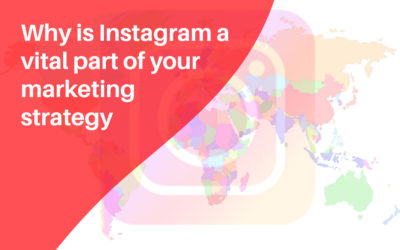Today’s conquerors
Expansion, empire building, conquest are hard in-grained into the champions of each era. In the times before, there was Qin Shi Huang, there was Genghis Khan and Alexander the Great. Today, there are entrepreneurs.
Expansion into foreign markets is by itself a strategic task and should not be made without considerable thought and investigation. More often than not, the move fails to meet expectations and adhere to the company’s long term strategic goals. The planning and implementation should be the task of a company’s management and not a mere reaction to a certain event. If anything, it should be a carefully thought out process with a clear motive of the strategic intent behind the action.
Here are some things to consider, amongst many others:
War chest
One obvious consideration when contemplating expansion is cost. Expansion often requires a significant commitment of corporate resources- both financial and human. In a smaller company, the owner’s personal finances may also be involved. Chances are, only the business owner’s skin is in the game. In some cases, you must be able to sustain the bleed before it becomes profitable.
A good move can bring a company to greater heights but a bad one can bring pain and ruin immediately. Having an investor would help to diversify risks and also bring about more financial muscle. An investor’s interest is also heavily aligned with that of the business and is likely to help if he/she has any connections in that market to help.
Hired Directors
Hired directors and advisors bring fresh, new ideas to a company and can provide valuable insight about strategic matters. They might also bring with them experience and network in the particular market. The last thing you want is to break into a new market with absolutely no connections
Many smaller companies aggressively pursue expansion when, in fact, they are not prepared to do so. Entrepreneurs are brilliant, daring and change agents which is why they have what it takes to build a business from scratch. In that first stage of growth, entrepreneurs are like heroes that defy common expectations and bring about unprecedented peace. After that however, comes another stage of growth, one where the entrepreneur may be lacking the skills to deal with.
Corporatization, or to take the previous analogy, peace-time. In times of peace, there are no need for heroes. It is a stage of creating a sustainable business. It is a stage of corporatization where specialist talents are brought in. Often, an entrepreneur becomes “stuck” in the hero mode, a company’s first stage of growth, when it is time to move on to the corporatization mode. This mode involves the creation of robust systems, processes and the right people. Strategy also means something much deeper than during the first phase.
An easy example would be the listing of a company. You will require a full board of directors governing investor relations, corporate secretary, compliance, governance amongst many others. Suddenly, everything becomes paper warfare.
Know your weakness
From time to time, it is important to go through a period of self-reflection. In corporate jargon, this is known as a strategic audit. This assessment can reconfirm or even inform management of the strengths within the company that management may have taken for granted. Assessment also brings out the weaknesses within the organization that management must act upon.
Whether it is a simple SWOT (Strength, weakness, opportunity, threat) analysis or a porter’s 5 forces exercise, it will reveal immediate action points or contingency plans that need to be made in case a fateful event were to happen.
Knowledge and information
Anyone blessed with common sense would know that charging in blind would be a fatal mistake. One should have armed himself with as much knowledge as possible. -From differences in accounting treatments, tax, legal to who are the people that you need to meet. Requiring 100% of knowledge to make a decision is pure insanity but jumping into the water without knowing if there are rocks below is not a very smart thing to do. There needs to be a fine balance and your strategy should address that.
Digital, a borderless solution?
Buzzwords are ricocheting around and one of them is the 4th industrial revolution. Sky-high valuations are based on the belief on incredible scalability through the www. The believers are religious that tech will disrupt traditional businesses and the secular ones are adamant it will not affect businesses.
It will but not in the way that you think. Tech will have an effect on the way business is done. For instance, the digitization of marketing services. Social selling, SEOs and digital marketing in general is an example of digitization. However, this does not mean that traditional marketing has been wiped off the earth. Traditional media buy-sell-placement still exists, banners and large television ads still play a big role. It simply means a change in the way business is carried out.
As entrepreneurs, you have to be ahead of the times and be able to look 3 or more years into the future. The business that survives and owns the revolution will be the ones that embraced technology and digitization. However, that being said, building a tech team is an incredibly risky play that most businesses are not able to afford.
Do you think it is the right time for you to expand?
- Have you built a strong international management team?
- Have you developed a strategic plan, and does the proposed expansion fit in with your overall strategic goals?
- Do you have the necessary resources – financial and human – to handle an expansion?
- Have you reflected on the impact that digital capabilities can bring you?
- Do you have a digitization plan?
- Do you have the necessary knowledge and connections in your target market?
CoAggregation® is a business model evolved by 2iB Partners that helps you overcome these problems through collaboration. We help you reduce costs, scale up, internationalize and future proof disruption. If you want to be a co-owner in a global company and become a disruptor instead of the disrupted, drop us an email at info@2ibpartners.com to have a confidential preliminary discussion.
Your partners, in the truest sense
For partnerships, speaker and general business enquiries with 2iB Partners:
| Contact Person | Dylan Tan |
| Designation | COO |
| Dylan@2ibpartners.com |
YOU MAY LIKE
The Future Employee
The future is now. Well, in some cases, the future is past. The sci-fi movie Blade Runner, made in 1982 and 2017, set the future in 2019. It got some things right (or at least headed that way in terms of flying cars and “android” helpers) and some things wrong (like...
Philippines 4.0 Skills Conference | 20-21st Nov
In conjunction with Philippine Trade Training Center, Global MSME Academy, Thames International and accelebator, 2iB Partners will be speaking on Emerging Trends in Retail, HR Transformation and how to internationalize your business. Learn from 12 different...
Mergers & Acquisitions – simplified. Or, a practical guide
M&A process
1. Strategy
2. Identification
3. Preliminary Due Diligence
4. Expressions of Interest
5. Detailed Due Diligence
6. Definitive Documentation
7. Post M&A
1. Strategy:
M&A begins with an idea in a company that helps it increase market share and access, t
Is having a Corporate Social Responsibility (CSR) program just a cost to your company?
Developing great companies that give back is more about devising a clear Corporate Social Responsibility (“CSR”) program aligned with the company’s goals and values rather than forcefully integrating CSR with their business strategies and goals. Instead of passing it off as a short term marketing gimmick, CSR should be seen as a long term investment strategy.
3 Key Notes Before Entering a New Market [Video & Transcript]
The above is a video taken during one of 2iB Partners master class where our advisor Mr. Richard Eu answers a question on “3 Key Notes Before Entering a New Market” by a business owner, Mr. Peh Zheng Yang. [Begin Transcript] Mr. Peh: You mentioned something like for...
Why is Instagram a Vital Part of your Marketing Strategy
Throw a stone and you will probably find someone who is taking a photo to post on Instagram. There has also been a strong push for consumer centric businesses to produce and develop products that are “Insta-worthy”. Whether it’s







![3 Key Notes Before Entering a New Market [Video & Transcript]](https://2ibpartners.com/wp-content/uploads/2017/06/map-1862587_1920-400x250.jpg)
